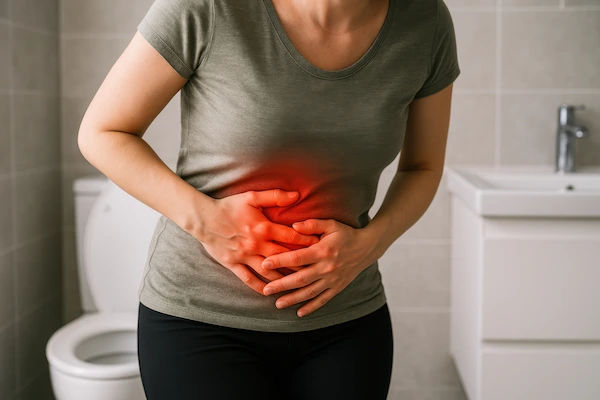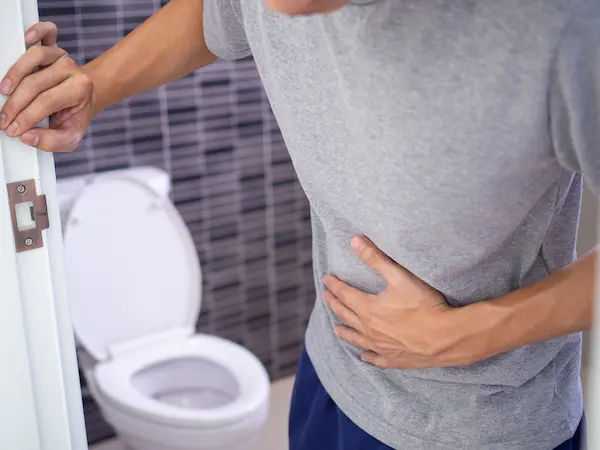Your Guide to Constipation Awareness Month: Relief & Prevention
Constipation Awareness Month is observed every December to highlight gut health. Learn about causes, symptoms, home remedies, prevention tips, and when to seek medical advice.

Written by Dr. M L Ezhilarasan
Reviewed by Dr. Rohinipriyanka Pondugula MBBS
Last updated on 13th Jan, 2026

Introduction
December is more than just a month of holidays; it is also Constipation Awareness Month, a dedicated time to shed light on a common yet often misunderstood digestive issue. While it may not be a typical dinner table topic, constipation affects millions of people worldwide, impacting their quality of life and overall well-being. It is characterised by infrequent bowel movements, difficulty passing stools, or a sensation of incomplete evacuation.
This guide aims to break the silence and stigma. We will explore the causes and symptoms, provide practical, evidence-based strategies for relief and prevention, and help you understand when it is time to seek professional medical advice. Let us use this awareness month as a catalyst for better digestive health.
What is Constipation Awareness Month?
Constipation Awareness Month, observed every December, is a global health campaign designed to educate the public about the causes, symptoms, and treatments of constipation. Initiated by health organisations and gastroenterology associations, its primary goal is to normalise conversations about bowel health and encourage individuals to seek help without embarrassment.
The Importance of Gut Health Awareness
Often called the "second brain," the gut plays a crucial role in our overall health, influencing everything from immunity to mood. Ignoring persistent digestive issues such as constipation can lead to complications, including haemorrhoids, anal fissures, or even faecal impaction. Awareness months like this are vital for public education, helping people distinguish between occasional discomfort and a chronic condition that needs medical attention. It empowers individuals with knowledge, promoting proactive health management.
Consult Top Doctors for Personalised Advice
Understanding Constipation: More Than Just Irregularity
Constipation isn't simply about not going every day. Medically, it's often defined as having fewer than three bowel movements per week. However, the quality of those movements is just as important as the quantity.
Common Symptoms of Constipation
Recognising the signs is the first step toward management. Symptoms include:
Passing fewer than three stools a week.
Lumpy, hard, or dry stools.
Straining or pain during bowel movements.
A feeling of blockage or that you haven’t fully emptied your rectum.
Needing to use manual manoeuvres to have a bowel movement (like pressing on your abdomen).
What Causes Constipation? The Usual Suspects
Constipation can arise from several contributing factors. These include everyday habits and, at times, underlying medical issues.
1. Dietary and Lifestyle Factors
The most common culprits are often within our control:
Low-Fibre Diet: Not eating enough fruits, vegetables, and whole grains.
Inadequate Hydration: Not drinking enough water and fluids, which makes stools hard.
Lack of Exercise: Physical inactivity can slow down your digestive system.
Ignoring the Urge: Regularly delaying the urge to go can weaken signals over time.
Stress: High stress levels can disrupt your gut-brain axis and digestive rhythms.
2. Underlying Medical Conditions
Sometimes, constipation is a symptom of another issue, such as:
Irritable Bowel Syndrome (IBS)
Thyroid disorders (hypothyroidism)
Diabetes
Neurological conditions (like Parkinson's disease or multiple sclerosis)
Medications (such as certain pain opioids, antidepressants, or iron supplements)
Effective Home Remedies for Constipation Relief
For occasional constipation, simple lifestyle modifications can be incredibly effective.
1. The Power of Fibre: Soluble vs. Insoluble
Fibre is indigestible plant matter that adds bulk and softness to stool. There are two types:
Soluble Fibre: Dissolves in water to form a gel-like material found in oats, apples, citrus fruits, and carrots. It helps soften stool.
Insoluble Fibre: Promotes the movement of material through your digestive system, found in whole wheat, nuts, beans, and cauliflower. It adds bulk.
Aim for a mix of both, increasing intake gradually to avoid gas and bloating. The recommended daily intake is 25-30 grams.
2. Hydration: Water is Your Best Friend
Fibre needs water to work effectively. Without adequate fluid, a high-fibre diet can actually worsen constipation. Aim to drink at least 8 glasses of water a day. Herbal teas, broths, and water-rich fruits like watermelon and cucumbers also contribute to your fluid intake.
3. Get Moving: How Exercise Stimulates Your Gut
Physical activity isn't just for your muscles and heart—it gets your intestinal muscles moving too. A brisk 30-minute walk, swimming, or yoga can stimulate intestinal contractions, helping to move stool through your colon more efficiently.
When Home Remedies Aren't Enough: Seeking Medical Help
If lifestyle changes haven't brought relief after several weeks, or if your symptoms are severe, it's crucial to consult a doctor.
Warning Signs You Should Never Ignore
Seek immediate medical attention if you experience:
Constipation that is new, persistent, or severe.
Unexplained weight loss.
Severe abdominal pain.
Blood in your stool.
Constipation alternating with diarrhoea.
These could be signs of a more serious underlying condition that requires diagnosis and treatment. If your condition does not improve after trying these methods, book a physical visit to a doctor with Apollo24|7 for further evaluation.
Diagnostic Tests and Treatment Options
A doctor may perform a physical exam and review your medical history. In some cases, they might recommend diagnostic tests such as blood tests to check thyroid function, a colonoscopy to look for blockages, or motility tests to assess how well your colon is moving stool.
Apollo24|7 offers convenient home collection for tests such as thyroid panels or diabetes screenings, making the diagnostic process smoother. Treatments may include prescription medications, biofeedback therapy, or in rare cases, surgery.
Preventing Constipation: Building Long-Term Healthy Habits
Prevention is always better than a cure. Incorporate these habits into your daily routine:
Establish a Routine: Try to go to the bathroom at the same time each day, especially after a meal when the colon's contractions are strongest.
Don’t Rush: Allow yourself enough time to have a bowel movement without straining.
Listen to Your Body: Never ignore the urge to have a bowel movement.
Manage Stress: Practices like meditation, deep breathing, or regular exercise can significantly benefit your gut health.
Conclusion: Taking Control of Your Digestive Health
Constipation Awareness Month serves as an important annual reminder that digestive health is a critical component of overall wellness. While occasional constipation is common, persistent issues should not be dismissed as normal. By understanding the causes, implementing effective dietary and lifestyle strategies, and knowing when to seek professional help, you can take proactive control of your gut health.
There is no shame in discussing these issues with a healthcare provider. If symptoms persist beyond two weeks, consult a doctor online with Apollo24|7 for personalised advice and a path towards lasting relief. Here is to a healthier, more comfortable you.
Consult Top Doctors for Personalised Advice
Consult Top Doctors for Personalised Advice

Dr Piyush Vishwakarma
Gastroenterology/gi Medicine Specialist
11 Years • MBBS, MD, DrNB,
Delhi
Apollo Hospitals Indraprastha, Delhi

Dr. Amit Pandita
Gastroenterology/gi Medicine Specialist
10 Years • MBBS. MD (INTERNAL MEDICINE) DrNB (GASTROENTEROLOGY AND HEPATOLOGY)
Delhi
Apollo Hospitals Indraprastha, Delhi

Dr Bhargav Vuppumalla
General Physician/ Internal Medicine Specialist
5 Years • MBBS MD GENERAL MEDICINE
Bengaluru
Apollo Medical Center, Marathahalli, Bengaluru

Dr Abhishek Tiwari
Minimal Access/Surgical Gastroenterology
15 Years • MBBS, MS, Diabetic Foot Course (Pisa, Italy)
Delhi
Apollo Hospitals Indraprastha, Delhi

Dr Sravani Kuppam
General Physician/ Internal Medicine Specialist
12 Years • MBBS DNB General Medicine, CCDM (Diabetes)
Bengaluru
Apollo Medical Center, Marathahalli, Bengaluru




.webp)